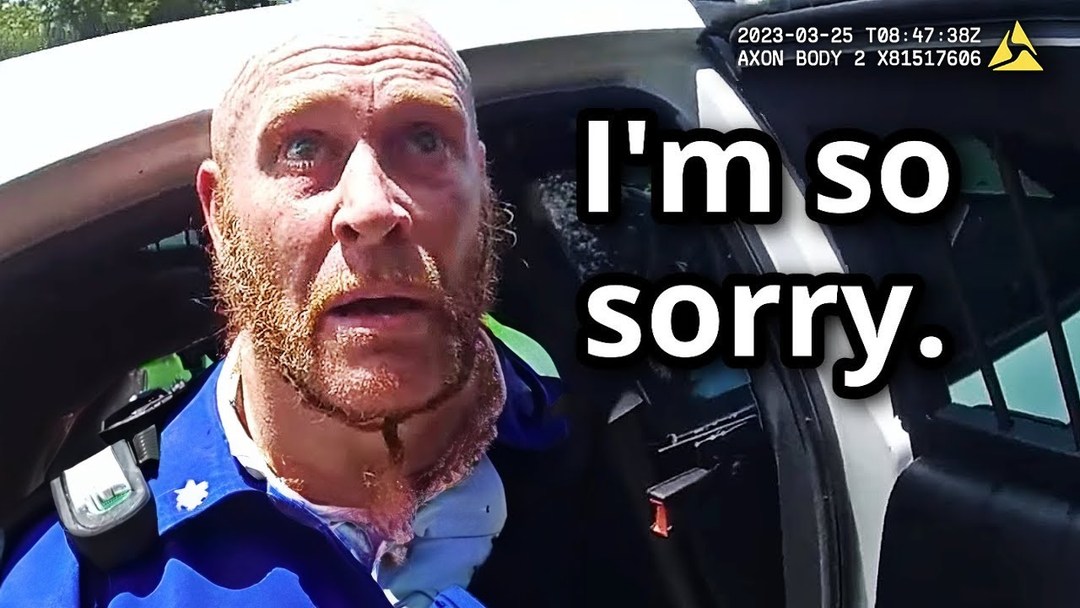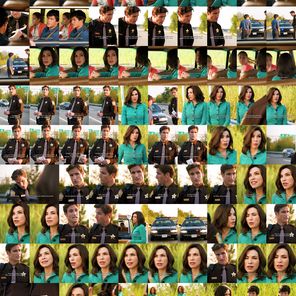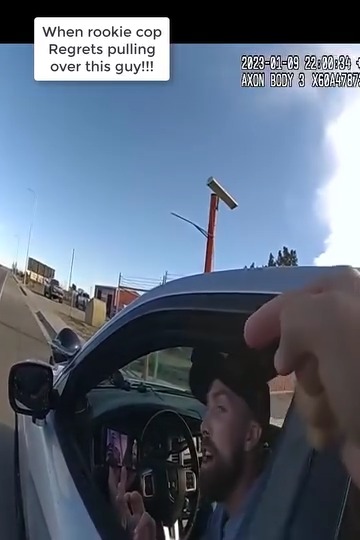Great Content Authority Forum Activities › Welcome to Great Content Authority (GCA) Forum › General Forums › Law, Litigation, Legal Matters › Corrupt Cops
Tagged: corrupt police officers
-
Corrupt Cops
Posted by Marcos on April 26, 2024 at 7:54 pmAre there corrupt cops? How could that be when the recruitment and hiring process of police officers include a thorough assessment of the police applicant’s background. Background investigation includes interviews of former and current employers, co-workers, supervisors, neighbors, classmates, and teachers. Background investigators of police officer recruits will check the candidates credit and employment backgrounds, criminal arrests and convictions, public records, and medical and psychological history records. Many law enforcement agencies will conduct written psychological examinations as well as an oral interview with a board certified psychologist. Other police agencies will have polygraph examinations as part of the background investigation process. Like many other professions, there are bad apples in law enforcement. Here are some videos of corrupt police officers caught on tape.
https://www.facebook.com/share/v/8rZBrhjnZ3sU7GQR/?mibextid=D5vuiz
facebook.com
When Evil Cops Got Caught Red Handed | Mr. Nightmare #cops #police #thinblueline #lawenforcement #policeofficer #UK #usa
Rugger replied 2 days, 2 hours ago 5 Members · 6 Replies -
6 Replies
-
Corruption within law enforcement is a serious issue that affects the integrity and trust of police departments globally. Here are some typical forms of corruption observed among police officers:
-
Bribery: Accepting or soliciting bribes in exchange for not enforcing the law or for favoring the briber. This can include looking the other way on illegal activities or providing sensitive information.
-
Extortion: Using one’s position as a police officer to demand money, goods, or services from individuals or businesses under threat of arrest or harm.
-
Evidence Tampering: Altering, planting, or destroying evidence to influence the outcome of investigations and court cases.
-
Theft: Stealing from crime scenes, suspects, or police property rooms.
-
Abuse of Authority: Engaging in conduct that does not comply with the duties and responsibilities of a police officer, including misuse of police powers for personal gain.
-
Protection of Illegal Activities: Offering protection to illegal operations such as drug trafficking, prostitution rings, and illegal gambling in exchange for payoffs.
These corrupt actions undermine public confidence in law enforcement agencies, lead to injustice, and can cause significant harm to communities. Combating police corruption often involves internal affairs units, external oversight bodies, regular audits, stringent recruitment and training policies, and maintaining a culture of ethics and accountability within police forces.
-
-
One of the biggests threatening situations you will be in during your lifetime is being confronted by a corrupt cop. What do you do? What happens if you are pulled over by a corrupt cop? Being pulled over by a corrupt police officer can be a troubling and potentially dangerous situation. Here are some steps and precautions you can take if you suspect you are dealing with a corrupt officer:
1. Stay Calm and Compliant
- Remain calm and polite during the interaction. Comply with reasonable requests like providing your driver’s license and registration, but remember your rights.
2. Be Aware of Your Rights
- You have the right to remain silent about anything that might incriminate you. You can politely refuse to answer incriminating questions.
- You can refuse consent to search your vehicle if there’s no probable cause or a warrant.
3. Document the Interaction
- If possible, discreetly record the interaction using a smartphone or a car camera. This documentation can be crucial if you need to file a complaint or defend yourself in court.
4. Look for Identifying Information
- Note the officer’s badge number, name, and the patrol car number. If you can’t see these, you are within your rights to ask the officer to identify themselves.
5. Witnesses
- Look around to see if there are potential witnesses. If someone is with you, they can serve as a witness to the interaction.
6. File a Complaint
- If you believe the officer acted inappropriately or corruptly, file a complaint with the police department’s internal affairs division or civilian complaint board.
7. Seek Legal Advice
- Consult with an attorney who specializes in criminal law or civil rights. They can provide advice specific to your situation and help you take legal action if necessary.
8. Public Recording
- Most states allow you to record police officers performing their duties in public, but you should inform the officer that you are recording to avoid any escalation.
9. Do Not Offer Bribes
- Never attempt to bribe a police officer as this is illegal and can result in serious charges.
10. Stay Informed
- Educate yourself about the laws in your state or country regarding police stops, searches, and your rights. This knowledge can empower you and provide confidence during such interactions.
Handling a situation with a potentially corrupt officer carefully and legally is crucial for your safety and legal protection. Always follow up with appropriate legal actions if you believe your rights have been violated.
https://www.youtube.com/watch?v=ZLQAK_1SabM&ab_channel=AudittheAudit
-
I think police reform is making progress. Years ago police officers charging other cops was unheard of. Cops who arrested cops were forced out of the police department or fired. Professional courtesy was extended in almost all cases and any cop accusing other cops of misconduct were considered a rat and were blacklisted from not just their own law enforcement agency but in all police agencies where their careers were over.
-
Corrupt cops are in every law enforcement agency in the nation. The fortunate thing is Corrupt cops are under the careful eyes of honest law enforcement officers with integrity and honor who honest their oath to protect and serve the citizens of the community they were sworn to protect and serve. Great video clip of what I am pointing out.
https://www.facebook.com/share/v/r6oFf8osxLNzbWWu/?mibextid=D5vuiz
facebook.com
Log into Facebook to start sharing and connecting with your friends, family, and people you know.
-
Here’s a clip from the Good Wife a miniseries on CBS. Here’s another case of an illegal search and seizure which is a violation of the fourth amendment of the United States Constitution
https://www.facebook.com/share/r/Cy5zrMXzpsTcPTK2/?mibextid=D5vuiz
facebook.com
Movie- The Good Wife✨ . . . . . . . . . . . . . . . . . . #MovieMagic #FilmLife #CinemaLove #OnSetMoments #MovieNight #BehindTheScenes #FilmCommunity #MovieTime #Cinephile #MovieBuff #FilmJunkie...
-
Many rookie cops need more experience on the job with a field training officer (FTO). ANYONE without experience can get hired as a probationary police officer and enroll at the police academy. Most police training academy programs in the United States is anywhere between 12 to 24 weeks depending on the state and jurisdiction of the law enforcement agencies. After the rookie probationary police officer graduates the police training academy, they are assigned a field training officer who is a rank and file experienced law enforcement officer, normally a patrolman for an additional six to eighteen months. During the rookie probationary period, he or she is not always under the supervision of the field training officer and is put on the spot of using their discretion which in many instances is violating the motorists constitutional rights. There’s a number of arrogant incompetent rookie police officers who is not ready to use their police powers and act above and beyond the law. Here’s a good video of a case scenario.
https://www.facebook.com/share/v/zkvCgjvmCoDYK8iJ/?mibextid=D5vuiz
facebook.com
Bodycam When rookie cop Regrets pulling over this guy!!! Cops Get Owned - Know Your Rights.




